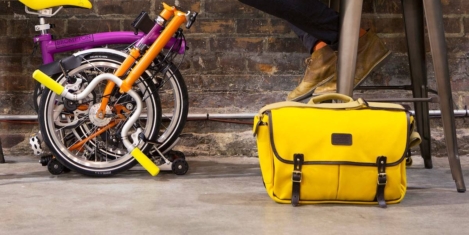To provide the best experiences, we use technologies like cookies to store and/or access device information. Consenting to these technologies will allow us to process data such as browsing behaviour or unique IDs on this site. Not consenting or withdrawing consent, may adversely affect certain features and functions.
The technical storage or access is strictly necessary for the legitimate purpose of enabling the use of a specific service explicitly requested by the subscriber or user, or for the sole purpose of carrying out the transmission of a communication over an electronic communications network.
The technical storage or access is necessary for the legitimate purpose of storing preferences that are not requested by the subscriber or user.
The technical storage or access that is used exclusively for statistical purposes.
The technical storage or access that is used exclusively for anonymous statistical purposes. Without a subpoena, voluntary compliance on the part of your Internet Service Provider, or additional records from a third party, information stored or retrieved for this purpose alone cannot usually be used to identify you.
The technical storage or access is required to create user profiles to send advertising, or to track the user on a website or across several websites for similar marketing purposes.
 Men undertake almost two-thirds of commutes lasting more than an hour, a new analysis from the Office for National Statistics shows. It also reveals that women tend to undertake shorter journeys to work, accounting for more than half (55 percent) of commutes lasting 15 minutes or less. But, for all people, commuting times are most likely to last 15 minutes or less and least likely to last more than an hour.
Men undertake almost two-thirds of commutes lasting more than an hour, a new analysis from the Office for National Statistics shows. It also reveals that women tend to undertake shorter journeys to work, accounting for more than half (55 percent) of commutes lasting 15 minutes or less. But, for all people, commuting times are most likely to last 15 minutes or less and least likely to last more than an hour.








 Demand for commercial office space in central London has remained above the long-term average, with the amount of space under offer increasing, though the level of supply in the West End has continued to decline, according to the latest figures from Savills. Take-up in April reached 275,473 sq ft across 24 transactions, bringing take-up for the first four months of the year to 1.3m sq ft. The volume of transactions to complete over the month was the lowest for April in five years but overall year-to-date take-up still remained up on the long-term average for this period by 13 percent.
Demand for commercial office space in central London has remained above the long-term average, with the amount of space under offer increasing, though the level of supply in the West End has continued to decline, according to the latest figures from Savills. Take-up in April reached 275,473 sq ft across 24 transactions, bringing take-up for the first four months of the year to 1.3m sq ft. The volume of transactions to complete over the month was the lowest for April in five years but overall year-to-date take-up still remained up on the long-term average for this period by 13 percent. 
 Employers can make major performance and productivity improvements by taking a more strategic approach to where they place their people, a new report suggests. Organisations with the closest alignment between their geographical talent footprint and market opportunity tend to be most productive and profitable claims Right people, wrong place?, a new EY report in collaboration with LinkedIn. The report analysed 659 organisations of varied size and scale across 11 sectors and revealed that those that poorly match their workforce to the global sub-sector growth markets are potentially leaving hundreds of millions of dollars of opportunity on the table. Bringing together a combined analysis of current and projected industry market performance from EY with LinkedIn’s insights from more than 530 million members, the report validates and quantifies the value of maximising the alignment between workforce location and market opportunity.
Employers can make major performance and productivity improvements by taking a more strategic approach to where they place their people, a new report suggests. Organisations with the closest alignment between their geographical talent footprint and market opportunity tend to be most productive and profitable claims Right people, wrong place?, a new EY report in collaboration with LinkedIn. The report analysed 659 organisations of varied size and scale across 11 sectors and revealed that those that poorly match their workforce to the global sub-sector growth markets are potentially leaving hundreds of millions of dollars of opportunity on the table. Bringing together a combined analysis of current and projected industry market performance from EY with LinkedIn’s insights from more than 530 million members, the report validates and quantifies the value of maximising the alignment between workforce location and market opportunity.























August 14, 2017
Seven ways in which flexible working is making our lives more rigid
by Mark Eltringham • Comment, Flexible working, Technology
More →